The Spiritual Habits of Peaceful People
- October 15, 2025
- 0
Unleashing the Power of The Spiritual Habits The Spiritual Habits of Peaceful People -> Quietness is a precious commodity in today’s hectic and chaotic society. We seek approval,
Unleashing the Power of The Spiritual Habits The Spiritual Habits of Peaceful People -> Quietness is a precious commodity in today’s hectic and chaotic society. We seek approval,
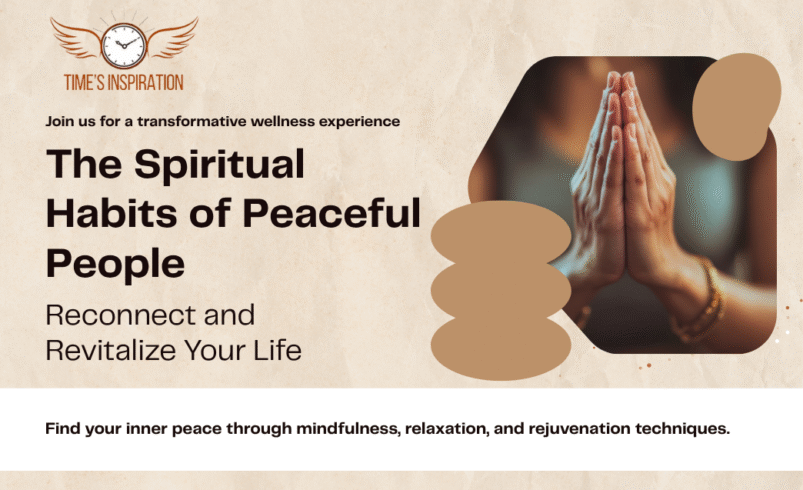
The Spiritual Habits of Peaceful People -> Quietness is a precious commodity in today’s hectic and chaotic society. We seek approval, productivity, and achievement, but what most of us really want is peace within. When faced with adversity, has anyone you met ever seemed to exude calm? Their demeanor exudes a sense of calmness; they appear steady, calm, and in the here and now.
Connect our other social media Platform also Facebook 🙂
Being so composed isn’t a fluke. It is the product of regular spiritual habits, such as peaceful routines that foster acceptance, presence, and connection. Even calm people experience stress and commotion; the key is that peaceful people know how to respond instead of reacting.
Discover the mentality that undergirds peacemakers, the spiritual practices that help them maintain their composure, and the steps you may take to incorporate these qualities into your own life.
Kind individuals understand that your morning routine determines the rest of your day. Forget about checking your inbox, scrolling around social media, or reading the news—they just sit quietly for a while.
What this could resemble is:
A tone of purpose rather than reaction is established by stillness. Before the din of the outside world starts, it is in these still moments that one can see clearly and find tranquility.
“If you lower your voice level, you’ll be able to hear more clearly” – Ram Dassis
Being grateful is like building muscle for peaceful people. They know that no matter how bad things become, there is always something to be grateful for, whether it’s air, food, a buddy, or even just the sunrise.
Expressing gratitude helps you focus on what you have instead of what you don’t. It trains your brain to focus on abundance rather than scarcity.
Easy methods to incorporate thankfulness throughout your day:
Gratitude helps put things in perspective, but it can’t remove suffering. It serves as a gentle reminder that tranquility is within reach, even in the face of adversity.
A spiritual guide from nature is among the best. The peaceful seek it out, not to flee, but to reconnect. The calming effects on the neurological system are a direct result of being outside in nature, taking in sounds like wind in the trees, waves lapping at the shore, and sunshine warming the skin.
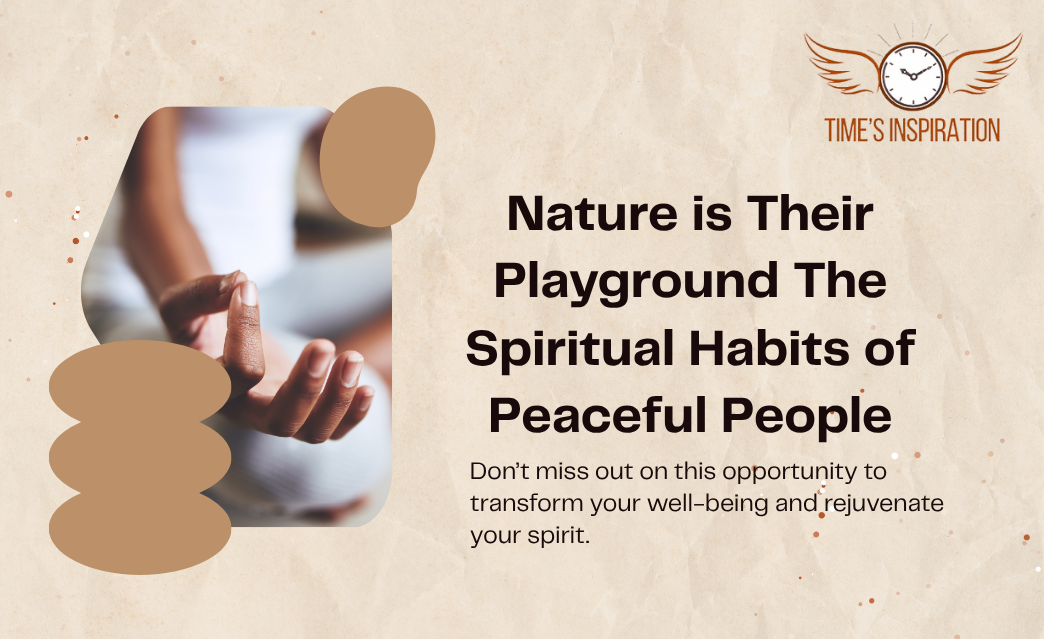
Experiencing nature, whether it’s gardening, taking a stroll in the park, or just sitting and gazing at the sky, helps us to remember that we are a part of a greater whole.
Experiments have shown that going outside reduces levels of the stress hormone cortisol and promotes the sensation of wonder, which is associated with a sense of spiritual well-being.
Simply put, mindfulness is the practice of paying undivided attention in the here and now. People that are peaceful aren’t attempting to run away from their problems or change the course of events. Focusing on the here and now has become second nature to them.
Small acts of mindfulness can add up to big impacts:
The key to finding inner peace is learning to accept and even welcome the present moment as it is. As the old adage says in Zen:
“Keep moving forward. Eat while you’re eating”
Angry feelings are the worst for your mental health. True peacemakers understand that forgiving another person isn’t about making excuses for their wrongdoing, but rather about releasing yourself from the emotional shackles that have held you captive.
When we forgive, we liberate ourselves spiritually. Lightness, compassion, and healing can enter.
Begin with a modest step:
Remembering isn’t the same as forgiving. That is, picking poison over peace.
Whether it’s God, the cosmos, nature, or the universal spirit of humanity, peaceful people have faith in a power bigger than themselves. They gain confidence and direction from this bond.
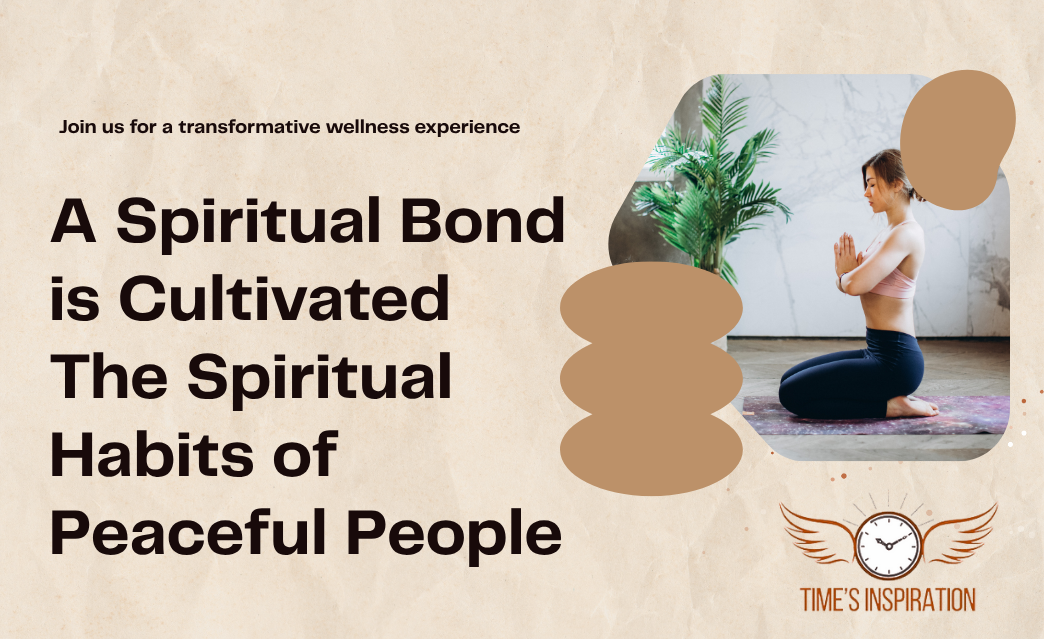
They connect with a more profound consciousness through contemplation, meditation, or peaceful prayer, and this awareness helps them maintain composure in the face of uncertainty.
Everyday difficulties become less daunting when you establish a connection to a higher power or cause. You start to perceive life as having purpose instead of being consumed by disorder.
When there are limits, inner calm can flourish. Being mindful of one’s energy isn’t narcissistic; it’s fundamental, and peaceful people know this. They have a good sense of when to back off, when to say “no,” and when to get some sleep.
From social media to discussions, they are picky about what they take in, preferring to be in uplifting rather than depressing surroundings.
One possible place to begin is by inquiring:
Boundaries allow tranquility to flourish.
Being nice, no matter how difficult it may be, is one of the most spiritual practices of tranquil people. When we are compassionate, our hearts open and our minds broaden to see beyond ourselves.
Even the smallest acts of kindness, like smiling, saying something nice, or being patient, can have far-reaching consequences.
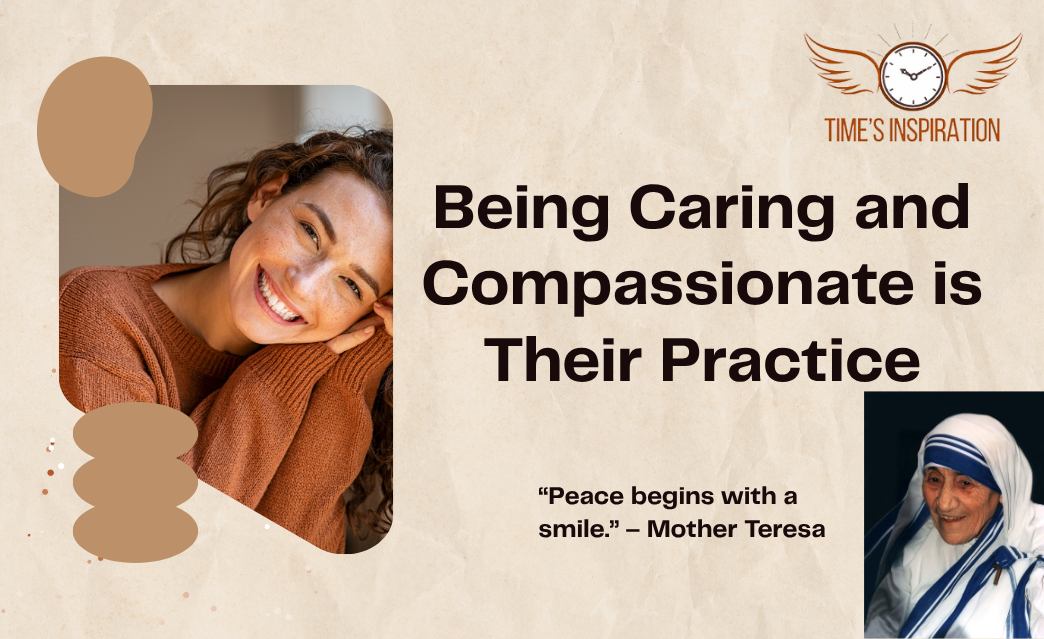
Being kind to oneself is also a part of compassion. Kind people are easy on themselves, particularly when they mess up. They are just as kind to themselves as they are to other people.
“Peace begins with a smile.” – Mother Teresa
Struggling to influence things beyond our control (e.g., other people, the future) is a major source of concern for most of us. For peaceful individuals, the loss of control is the first step toward peace.
They put their efforts where it counts: on their decisions, behaviors, and attitude. With trust, they let go of all else.
Every day, you can deepen your spiritual life by practicing submitting, not in defeat, but in faith. By releasing, they make space for acceptance, grace, and flow.
People who are at peace with themselves take the time to ponder, to stop, to look inside, and to reestablish their principles. To get back on track with what’s important, they could write in a notebook, meditate, or go for a walk in the park.
Live with purpose, not in a reactive state, by making this a habit. Wisdom comes from experience, and calm from wisdom comes through reflection.
Renewal occurs when we repeatedly return to who we are, when we halt our racing thoughts and begin to listen.
A peaceful mind lays the groundwork for order, while regular routines provide the framework. A handful of fundamental principles govern the lives of peaceful people:
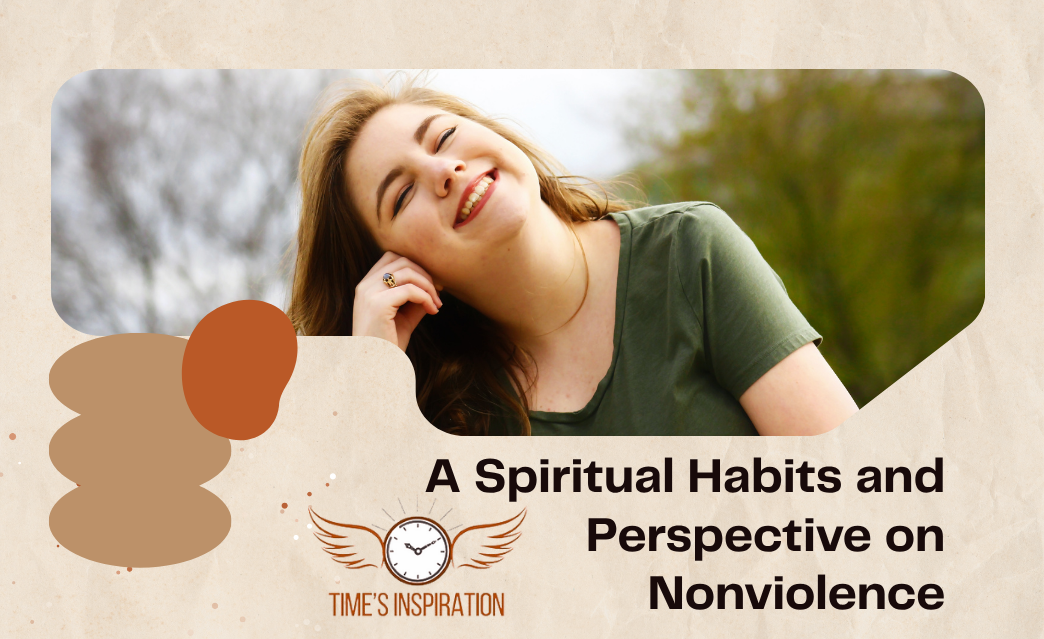
Finding inner calm depends more on our perspective on life than on any external factors.
You may live a calm life without becoming a monk or meditating for hours. Begin with a modest step:
You can’t get to a place of peace by waiting; it requires constant effort, one decision, one breath, and one instant at a time.
Being calm isn’t something that individuals are born with; it’s something that people cultivate through self-awareness, self-control, and living from the heart. They’ve realized that being rooted in the midst of chaos is more important than having it all go away.
Changes occur in one’s life when they start practicing spiritual habits like thankfulness, awareness, forgiveness, and connection. Feeling more grounded in a tranquil bliss that no amount of turbulence can disturb, you will notice that you react less and love more.
It is from within, not from elsewhere, that one can build true serenity.
Therefore, relax. Decrease your speed. Stay in tune with your inner silence.
xtThere, tranquility has always been patiently waiting.
Subscribe Now